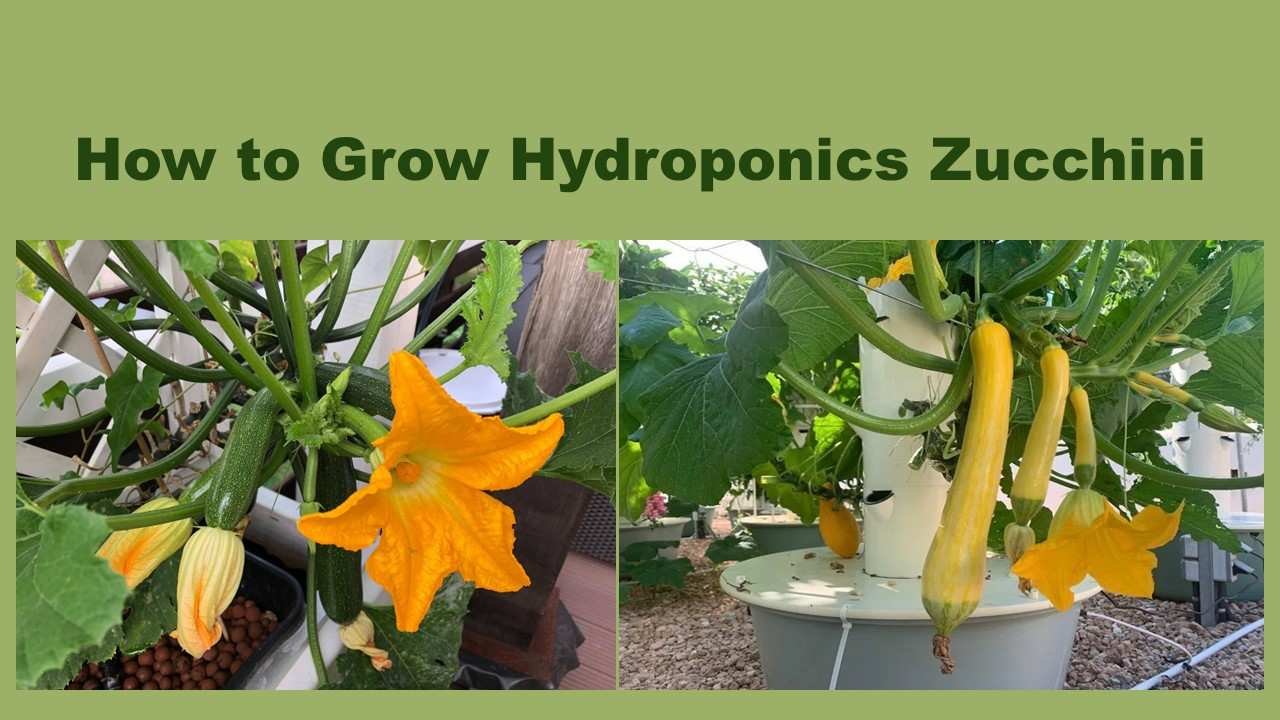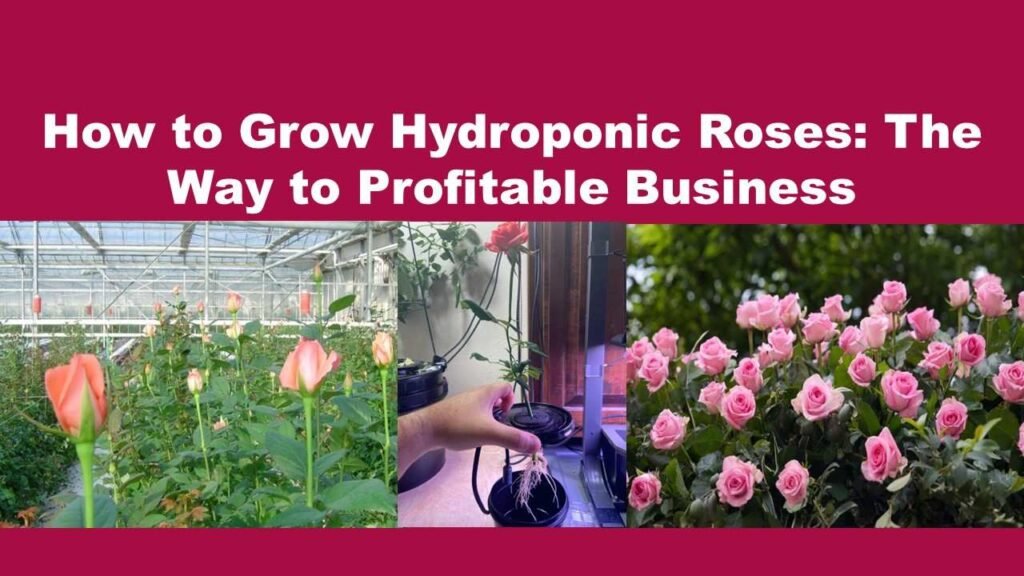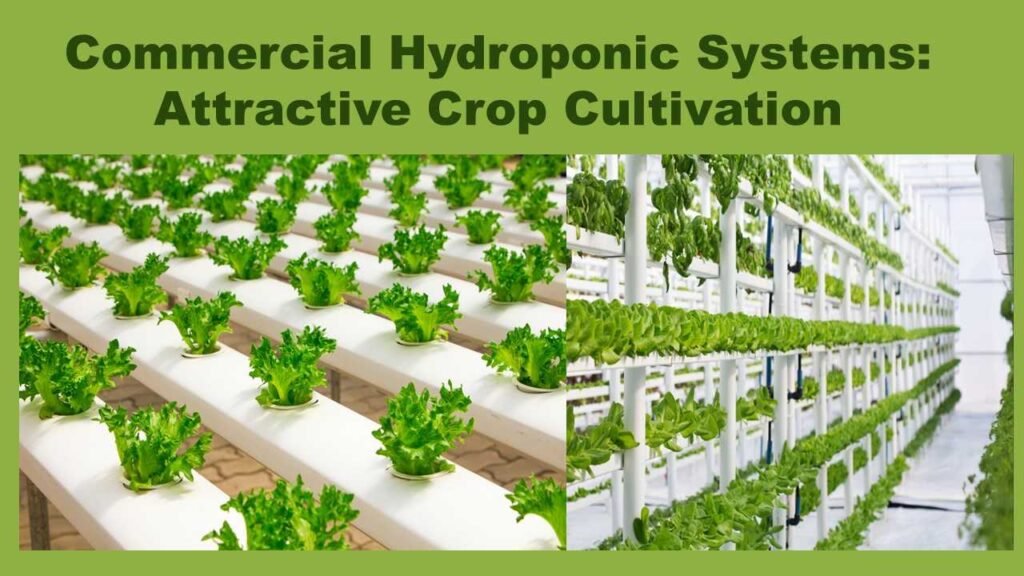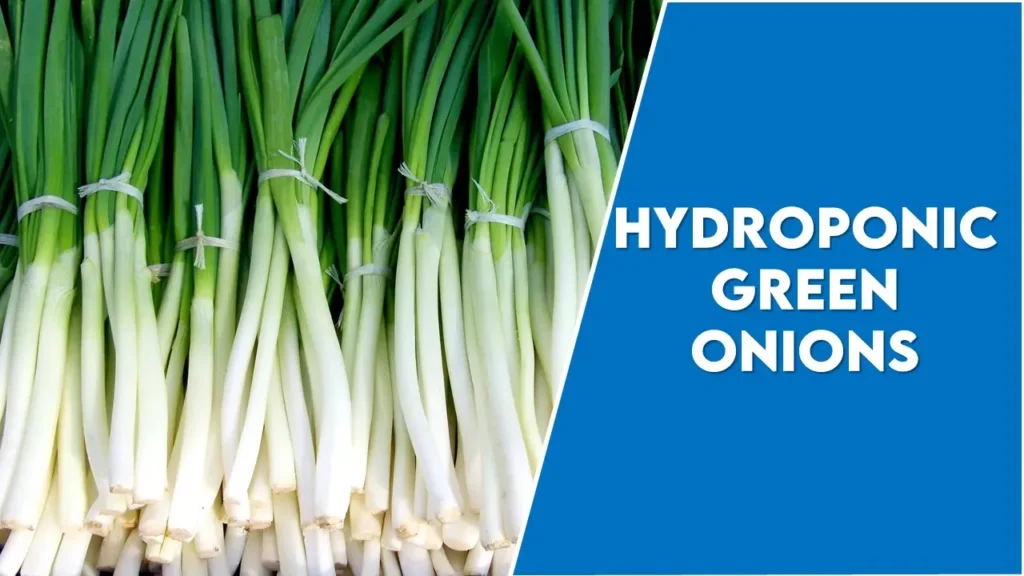How to Grow Hydroponics Zucchini – A Complete Guide
Zucchini or baby marrow is a summer squash herbaceous plant belonging to the family Cucurbitaceae. Zucchini contains compounds like lutein and zeaxanthin which helps to protect the eye’s cell. It is a rich source of vitamin B6 which is helpful for regulating blood sugar. Zucchini is very beneficial because it contains various types of vitamins, minerals and other important compounds. After cooking, vitamin A content of zucchini is increased more than raw zucchini. The antioxidants present in zucchini are very much beneficial for us (specially for eyes, skin and heart). This nutrient-enriching crop is mainly cultivated in the summer season, but nowadays cultivars are growing it in a hydroponic system for better yield, nutrition.
Hydroponic system is a fantastic way of replacing traditional soil based cultivation by nutrient enriched media which also conserves water and space. Hydroponics zucchini production is not only an innovative idea but also a movement towards sustainable production.

Nutrient Fact of Zucchini:-
| Protein | 2% |
| Vitamin A | 7% |
| Vitamin C | 9% |
| Iron | 2% |
| Vitamin B6 | 27% |
| Magnesium | 4% |
| Manganese | 28% |
| calcium | 1% |
| Potassium | 7% |
| Sodium | 36% |
| Dietary fiber | 4% |
Reason for Increasing Interest in Growing Hydroponic Broccoli:
Efficiency of Growth and Resource Utilisation :
The notable benefit of hydroponics zucchini lies in its accelerated growth and efficient resource utilisation. Plant gets direct nutrient access that leads to faster maturation. Additionally, hydroponic systems, being water-efficient, contrast favourably with traditional soil farming, particularly in regions with water scarcity, aligning with the increasing emphasis on sustainable agricultural practices.
Nutrient Use Efficiency:
Hydroponic system maintains ideal nutrient balance for growth of the plants. That will ensure healthier plants and higher produce compared to traditional soil based cultivation.
No Environmental Impact:
Growing zucchini indoors without soil eliminates the risk of soil erosion and nutrient runoff, resulting in minimal environmental stress on the crop.
Increased Yield:
Under optimal conditions, hydroponic cultivation can boost zucchini yields by up to 30% compared to traditional soil methods.
Year-Round Accessibility
Traditional farming is subject to seasonal limitations, but hydroponics provides a solution. Hydroponic broccoli cultivation is not bound by climate or weather constraints, enabling year-round production. Hydroponics can grow vegetables in controlled environments and provide continuous supply which can easily meet the consumer’s demand easily.
Hydroponics Zucchini Varieties :-
Suitable varieties for hydroponics zucchini are- Bush baby, Spacemiser. Black beauty, Raven etc. are suitable for hydroponics systems because they are a space saving variety. Maintaining space is a very important factor in hydroponics zucchini production.

Best Hydroponic System Used to Produce Hydroponics Zucchini: How to Grow Hydroponics Zucchini
Zucchini needs plenty of space to grow properly. That’s why deep water culture or the Dutch bucket method is very suitable for growing hydroponic zucchini.
Deep Water Culture :
Deep water culture method is one of the efficient methods for cultivating hydroponic broccoli. In this system, plant roots are directly suspended in the nutrient-rich solution, eliminating the need for the water pump and air stone to aerate the root zone.
With minimal maintenance and fewer moving parts, this approach allows broccoli plants to fruit or flower more rapidly compared to other systems. Surprisingly, it’s feasible to grow broccoli in a deep water culture system using just a single five-gallon bucket.

Dutch Bucket Hydroponic System:
The Dutch bucket hydroponic system is also known as Bato bucket system. It is made by connecting two or more growing buckets to the same irrigation and drainage system. It is an ideal hydroponics system for heavy feeder crops like tomato, brinjal, zucchini etc. Hydroponics present an exceptional approach for optimising water and nutrient usage.

How to Start Growing Hydroponics Zucchini:
There is a various way to start growing hydroponics zucchini-
Through Seed Germination-
It takes about 7 to 14 days to germinate hydroponic zucchini when the temperature is around 75 degree range and it is a very easy way to start.
By Cloning Zucchini:
You can also save your money and time by cloning zucchini and planting it. A 5 to 7 inch lung sucker leaf (without any bud attached to it) is sufficient and has to place it in growing media.
Transplanting Store Bought Zucchini Seedling:
A super easy way to start hydroponics zucchini gardening is transplanting seedlings bought from the market. It will save time and effort both.
Which is The Best Method for Propagating The Hydroponics Zucchini – Seeds Vs Clones
Choosing the right propagation method is very essential for maximum yield. Seed is the ideal potion of growing hydroponics zucchini. As it is a summer crop, it requires a warm and moist condition for better root growth. Zucchini seeds can be shown ¾” inch deep in cocopeat or vermiculite which helps to retain moisture and also provide support. In optimum temperate like 70 degree F seed starts germinating within 7 to 14 days. After emergence seedlings can be transplanted in a suitable hydroponics system.
Parameters maintained in Hydroponics Zucchini:
Temperature And Humidity Requirements for Hydroponics Zucchini:
As Zucchini is a summer crop, a warmer temperature is needed. Best daylight temperature is around 75-80 degrees F. The night temperature requirement is 65- 75 degrees F. Maintaining a moderate humidity level is very important to avoid stress and to promote vigorous growth.
Light Requirement for Hydroponics Zucchini:
Light is very crucial for growth in the hydroponic system. Supplemental lighting(LED grow light) is essential for proper growth and development as well as fruit setting. At least 14 to 16 hours of light each day is mandatory for vigorous growth.
pH Level Maintenance for Growing Hydroponics Zucchini:
The optimum pH level for growing hydroponics Zucchini is 6.0.
Pest and Disease Infestation:
Pest and Disease infestation is very less or negligible in hydroponics systems as it is growing in a protected system and under observation. So, the hydroponic method is one of the best methods for growing hydroponics zucchini.
Nutrient Management for Hydroponics Zucchini Farming:
Nutrient plays a very important role in maximising yield and preventing nutrient deficiencies. Applying appropriate nutrient quantity is also necessary to avoid nutrient toxicity because nutrient requirement is different in every growth stage.
Following Hand Pollination Techniques:
Hydroponics zucchini needs hand pollination for better fruit setting. Before pollination, distinguishing male and female flowers is important which is quite easy. Female flowers have a bulging at its base like small fruit but in male flowers it is not present.
For hand pollination,
- First, take a soft brush and rub it inside the male flowers.
- Collect pollen as much as possible.
- Then carefully rub the brush inside the female flowers.
- Repeat this process for some days for an efficient result.

Harvesting Method of Hydroponics Zucchini:
You can harvest the Zucchini when it reaches a length near 6 to 9 inches. You can easily harvest zucchini by cutting the stem above the fruit with the help of a clean knife. It is necessary to harvest hydroponic zucchini in proper time to get fresh flavour. Otherwise the taste of the fruit will degrade. Harvesting is also necessary for continuous production and to prevent overcrowding on plants.

Maintaining Hygiene and Cleanliness :
Maintain hygiene by sanitising equipment and regularly cleaning the hydroponic system to prevent algal and fungal growth.
Some Negative Side of Growing Hydroponics Zucchini:
High Initial Investment:
Establishing a hydroponic system, especially on a large scale with custom designs, incurs substantial setup costs. Components such as water treatment plants, nutrient tanks, lighting, air pumps, reservoirs, temperature controllers, EC and acidity control, and plumbing systems contribute to a significant initial budget.
Dependency on Continuous Power Supply:
Hydroponic farming relies heavily on a consistent power supply to sustain its various components. The entire system depends on electricity so it may lead to failure due to insufficient power supply and restrict the plant growth and development. While some farms integrate solar-powered systems, initial operational costs and challenges in maintaining continuous electrical supply remain.
High-Level Maintenance & Monitoring:
Constant Vigilance Required:
To ensure the seamless supply of nutrients, growers must maintain a high level of vigilance. The system should be monitored regularly to check the functionality of the pumps, appropriate temperature and availability of light as per the plant’s requirement.
Susceptibility to Waterborne Diseases:
While hydroponic systems mitigate soil-borne disease risks, the continuous water circulation poses a threat of waterborne diseases. Diseases carried by the water solution can potentially spread among plants, risking the entire system’s health.
Specialised Expertise Needed:
Operating a hydroponic system involves intricate technicalities. For the effective handling of the equipment, skilled and knowledgeable persons are required. Otherwise, improper handling may affect the plant growth and development, ultimately the yield.
Debate over Organic Certification:
Though pesticides are not used in hydroponic system but required concentration of fertiliser may be used for effective growth of plants, that will raise questions on organic certification. Some organic farmers argue against it, emphasising that true organic farming focuses on enhancing soil quality and fertility, aspects not entirely addressed in hydroponics.
Some Important Tips for Hydroponics Zucchini Farming:
Selection of Seeds:
It is important to collect zucchini seeds from reputable suppliers which will increase the chance of healthy plants. It is also very essential to choose the right variety which is suitable for the hydroponic system, according to the need of supplies.
Regular Monitoring of pH and EC Levels:
It is important to check pH and electrical conductivity (EC) of the nutrient solution regularly to maintain optimum growth of plants.
Providing Proper Air Circulation:
Pruning is done to prevent overcrowding of plants and providing proper air circulation around plants which reduces chances of fungal disease and enhances better fruit development.
Maintaining Proper Cleanliness:
It is very important to clean all the equipment very carefully during hand pollination and harvest. Otherwise there is a chance of transmitting fungal diseases that will hamper the production of crops.
Conclusion
From the above study we can conclude that farming of zucchini using hydroponics is a versatile system that reduces the environmental impact and ensures high productivity. Though it has some disadvantages like set up and maintenance cost, its huge advantages including resource utilisation, faster growth, high productivity, nutrient enriched produce gives it a superior position in modern agriculture. Hydroponics zucchini farming provides a promising solution for sustainable agriculture by managing soil-related, pest and disease related, space related adverse conditions. This technique also mitigates the demand of the growing populations for fresh, nutrient enriched produce who are very much health conscious. This hydroponics system for growing hydroponics zucchini will boost modern Agriculture by future research and innovation.
Join Our Hydroponics Growers Group!
Connect with fellow hydroponics enthusiasts, share your ideas, ask questions, and grow together as a community.
👉 Join WhatsApp Group






